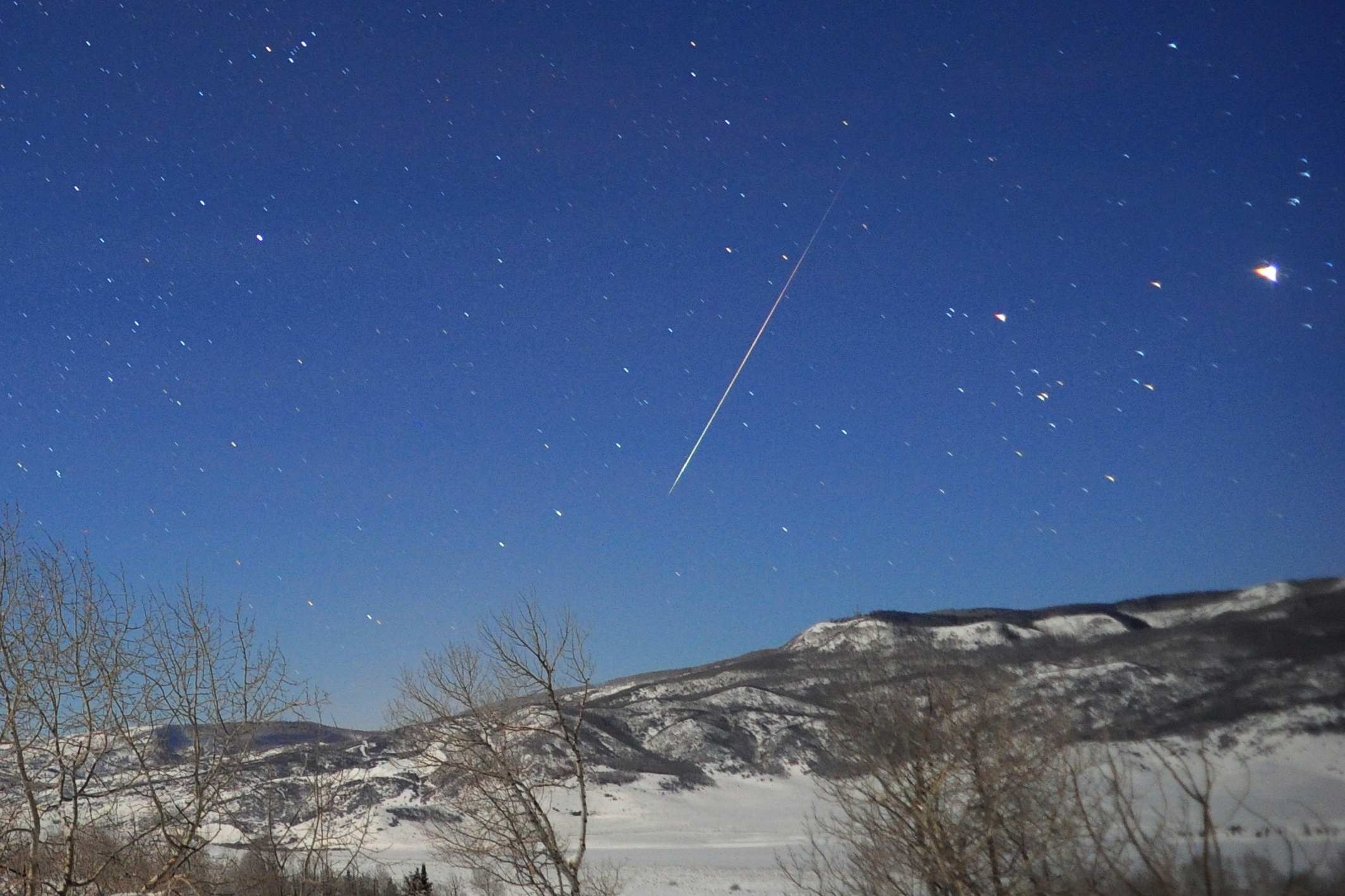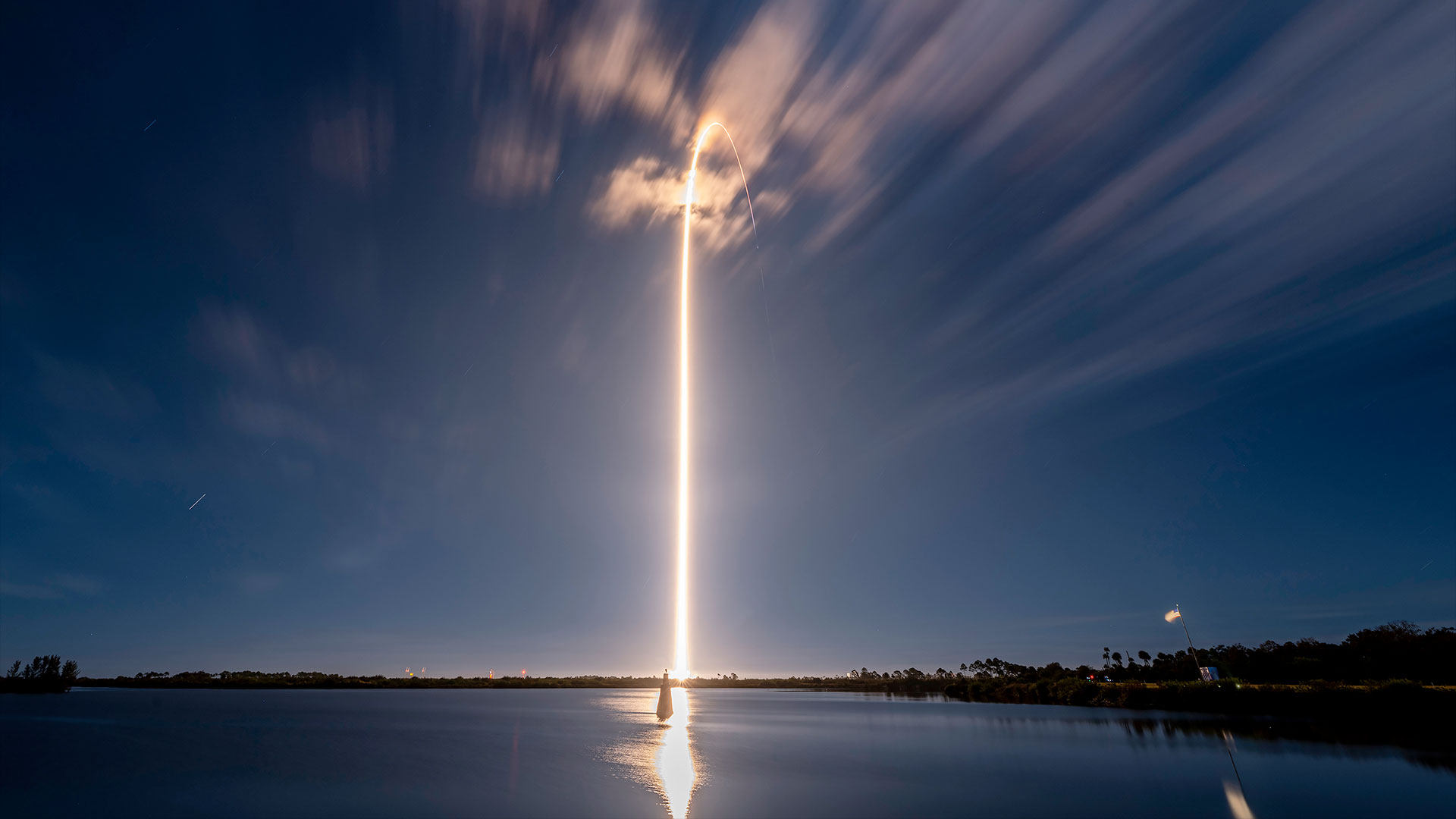First known extraterrestrial protein possibly spotted in meteorite

A research team claimed to have found the first known extraterrestrial protein, spotting it in a space rock that fell to Earth 30 years ago.
The scientists, led by Malcolm McGeoch of the Plex Corp. in Fall River, Massachusetts, analyzed the meteorite Acfer 086, which landed in Algeria in 1990. High-precision mass spectrometry revealed the presence of a novel protein, McGeoch and his team wrote in a new paper that's available on the online preprint site arXiv.org.
The protein, which the researchers proposed calling "hemolithin," consists of chains of the amino acids glycine and hydroxyglycine, as well as iron, oxygen and lithium atoms, the researchers reported. And the hemolithin is significantly enriched in deuterium, a heavy isotope of hydrogen that features a neutron in its atomic nucleus along with a proton. (The nucleus of a "normal" hydrogen atom has a proton but no neutron.)
Related: 6 most likely places for alien life in the solar system
Such deuterium enrichment does not appear in amino acids that form here on Earth, and so it "indicates protosolar disc or molecular cloud origin," McGeoch and his colleagues wrote in the paper, which has been submitted to a journal and is currently undergoing peer review. (You can read the preprint for free here.)
"This is the first report of a protein from any extraterrestrial source," the scientists added.
To be clear, the researchers aren't claiming that the hemolithin is evidence of alien life. But the discovery, if it holds up, would still be of great interest to astrobiologists. That's because it would show that very complex chemistry of the sort employed by life as we know it on Earth occurs of its own accord in deep space. (Proteins are the workhorses of cells, performing a wide variety of tasks for organisms.)
Breaking space news, the latest updates on rocket launches, skywatching events and more!
The implication would be that it doesn't take a miracle for bona fide biochemical systems to get up and running — and that, therefore, life might be widespread throughout the cosmos.
This notion is hardly outré anymore, because researchers are racking up more and more evidence of complex chemistry occurring beyond Earth. Big organic molecules swirl in the thick atmosphere of Saturn's huge moon Titan, for example, and amino acids — the building blocks of proteins — have been found in meteorites and on comets.
But such talk of implications is preliminary; the new paper is still under peer review, after all. And not everyone is onboard with the results.
"I am not impressed by this report," said Jeffrey Bada, distinguished professor of marine chemistry emeritus at the University of California, San Diego's Scripps Institution of Oceanography.
"The main problem is the occurrence of hydroxyglycine, which, to my knowledge, has never before been reported in meteorites or in prebiotic experiments. Nor is it found in any proteins," Bada, whose research interests include the geochemistry of amino acids, organic cosmogeochemistry and the search for alien life, told Space.com via email. "Thus, this amino acid is a strange one to find in a meteorite, and I am highly suspicious of the results."
Space.com reached out to the corresponding author of the new study, Julie McGeoch of Harvard University's Department of Molecular and Cellular Biology. She said she'd be happy to discuss the paper — but only after it has passed peer review.
So, stay tuned; we may be hearing more about possible extraterrestrial proteins in the not-too-distant future.
- 7 theories on the origin of life
- Alien life could use endless array of building blocks
- Meteor showers and shooting stars: Formation, facts and discovery
Mike Wall is the author of "Out There" (Grand Central Publishing, 2018; illustrated by Karl Tate), a book about the search for alien life. Follow him on Twitter @michaeldwall. Follow us on Twitter @Spacedotcom or Facebook.
OFFER: Save at least 56% with our latest magazine deal!
All About Space magazine takes you on an awe-inspiring journey through our solar system and beyond, from the amazing technology and spacecraft that enables humanity to venture into orbit, to the complexities of space science.

Michael Wall is a Senior Space Writer with Space.com and joined the team in 2010. He primarily covers exoplanets, spaceflight and military space, but has been known to dabble in the space art beat. His book about the search for alien life, "Out There," was published on Nov. 13, 2018. Before becoming a science writer, Michael worked as a herpetologist and wildlife biologist. He has a Ph.D. in evolutionary biology from the University of Sydney, Australia, a bachelor's degree from the University of Arizona, and a graduate certificate in science writing from the University of California, Santa Cruz. To find out what his latest project is, you can follow Michael on Twitter.

